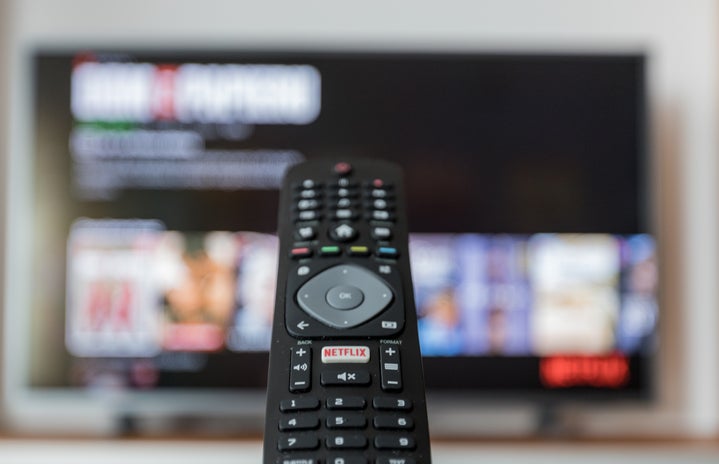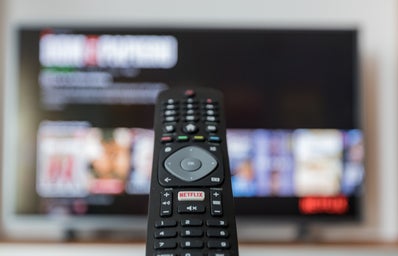Ever feel that reality is too hard to bear? And Netflix just seems like the right avenue to leave your troubles behind?
Been there, done that. For me there has always been this fear to truly allow myself to indulge in a TV series. This is due to my experience with it as a form of escapism, from the harsh realities of JC life. A few years ago, I was struggling with my grades in Junior College. I ended up binge-watching TV shows like Friends, and various Korean dramas that I favoured – just so that I can produce that ‘good feeling’, which I did not manage to emulate in my reality. It, in turn, cost me an additional year before I actually went to university.
As such, my motivation to explore what drives us to binge-watch is a friendly warning to the dangers of such a pleasurable yet unthinking activity: how it can be detrimental to us, especially if you really want to achieve and excel at something in your life.
This is so as binge-watching takes away the precious time that we have that enables us to put in the dirty work to improve ourselves. As much as we may not like it, certain processes such as practicing exam questions, getting through a lengthy reading, or even having to catch up with submissions, are all part-and-parcel of academic life here in Singapore. We all have to go through it one way or the other. Especially if you want to be above the average in standing, you can expect that effort beyond the mediocre has to be put in, so as to reach your desired outcome.
Of course, some may argue that if we get so fixated on results, how are we supposed to take care of our mental health, which might come in the form of enjoying a good TV show from time to time? In my opinion, there has to be a balance between binge-watching for stress-relief and for escape. The latter can eventually lead to an addiction if left uncontrolled. Discipline is imperative to put a stop to our habit of clicking on to the next episode impulsively.
According to scientific research, we continue to watch one episode after another due to an underlying sense of anticipation to watch the next episode. This drives our behaviour of watching a TV series for hours on end, as it is extremely difficult and counterintuitive to put an end to an activity that stimulates satisfaction.
Especially in this Age of Instant Gratification, it is no surprise to hear one having finished the latest Netflix craze, Squid Game, and all of its nine episodes in one sitting. And binge-watching is defined as, “watching between two and six episodes of a TV show in one setting”.
Concurrently, it has also occurred to me how such a tendency is normalised, and not viewed to be something of concern. We are essentially allowing the entertainment industry to gain control over our lives. How much of our time are we really giving away to the various streaming platforms, in deciding and orchestrating our habits?
There is this article by Eve Arnold titled, “Attention is Your Currency – Spend it Wisely” which I feel is very relevant to the notion of binge-watching and how it takes up so much of our time and energy that it can be used against us. “Attention means leverage”, as pointed out from the article. This is so as on-demand streaming platforms like Netflix are dependent on people being engaged with their content, so that they can continue to pay for their monthly subscriptions.
The goal is most likely to get people to subscribe long-term. One tactic that Netflix and other similar platforms use is the act of introducing a new way of consumption: releasing an entire season in one shot for the newer TV series in the market, and the whole series of seasons for existing TV shows. Coupled with how episodes tend to be structured — with a hook right at the end of each episode — this makes for a deadly pairing!
Not only that, it becomes a triple threat when you take into consideration how Netflix produces their own TV shows which are not only in high demand, but addictive in their plot. Some famous household Netflix Originals that might come to mind are Bridgerton, Emily in Paris, and 13 Reasons Why!
Hence this would further incentivise one to stay subscribed to Netflix so as to keep up with their original series which are still in production.
With such a culture of excessive binge-watching, that has become deeply embedded into our lifestyle; it might even be a form of necessity in the lives of consumers.
This is truly unlike traditional television, where viewers have to wait a week for the release of the proceeding episode. In a way, this inculcates a culture of expecting things or gratification to come easily; or a culture of impatience, with expectations of immediate gratification.
Last thoughts:
One cannot deny how Netflix and the act of binge-watching provides a sense of escape from our mundane reality, a production of dopamine (or pleasure chemicals), which can help alleviate our stress when we want to wind down. Thus the term, “easy, feel-good fix” comes to mind whenever we mention binge-watching.
It is important to be aware of how there is a fine-line between binge-watching as a pastime and an addiction. It is important to watch our favourite shows in healthy doses, without leaving our other priorities on the backburner, which might compound to you lagging behind in your studies or work. Just remember that time taken to watch these TV shows cannot be returned to you; and that time is something that is invaluable. The little things that take up the most of your time, will compound to become habits, and eventually determine how your life will play out.


